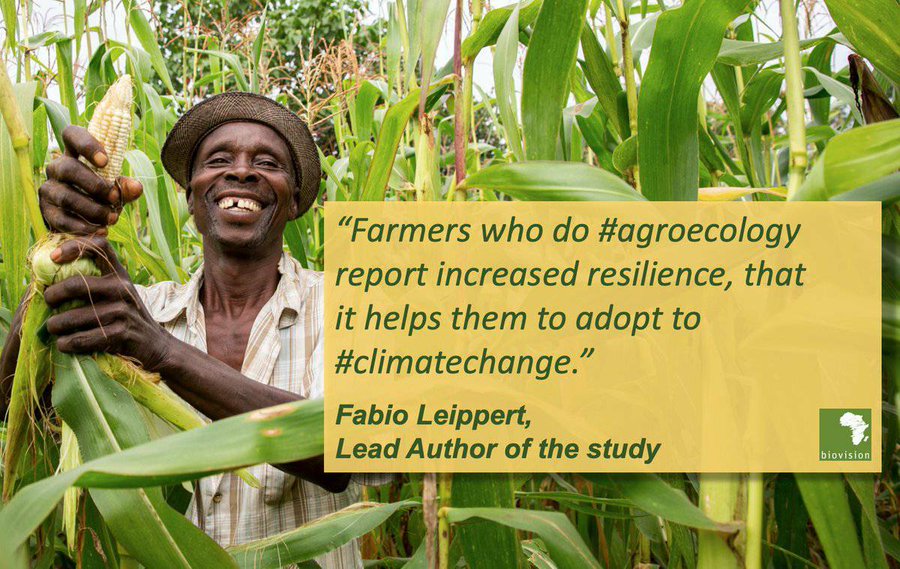Leippert, F., Darmaun, M., Bernoux, M. and Mpheshea, M. 2020. FAO and Biovision. 154 pages
https://doi.org/10.4060/cb0438en
Inspired by the idea that transformation will only happen through a coordinated approach among all levels, this study aims to combine evidence from a broad range of backgrounds and perspectives.
Key insights/findings:
- Solid evidence demonstrates that agroecology increases resilience, especially by strengthening a) ecological principles, in particular biodiversity, overall diversity and healthy soils (Meta-analysis & case studies results); and b) social aspects, in particular co-creation and sharing of knowledge and building on traditions (case study results).
- The interdisciplinary and systemic nature of agroecology is key for its true transformational power but challenging, both for research and policy processes: the majority of existing scientific evidence and current policy processes focus only on the productive dimension, mostly with only sectorial view on crop production.
- Agroecology is proposed as one of the approaches to hedge against climate change by countries, with 12.5 percent of the national determined contributions (NDCs) mentioning Agroecology. Also in the UNFCCC related processes, agroecology is strongly supported by the findings and recommendations of the 2019 International Panel on Climate Change (IPCC) Special Report on Land and the 2019 CFS High Level Panel of Experts on Food Security and Nutrition (HLPE) report.
Resources:


No comments:
Post a Comment